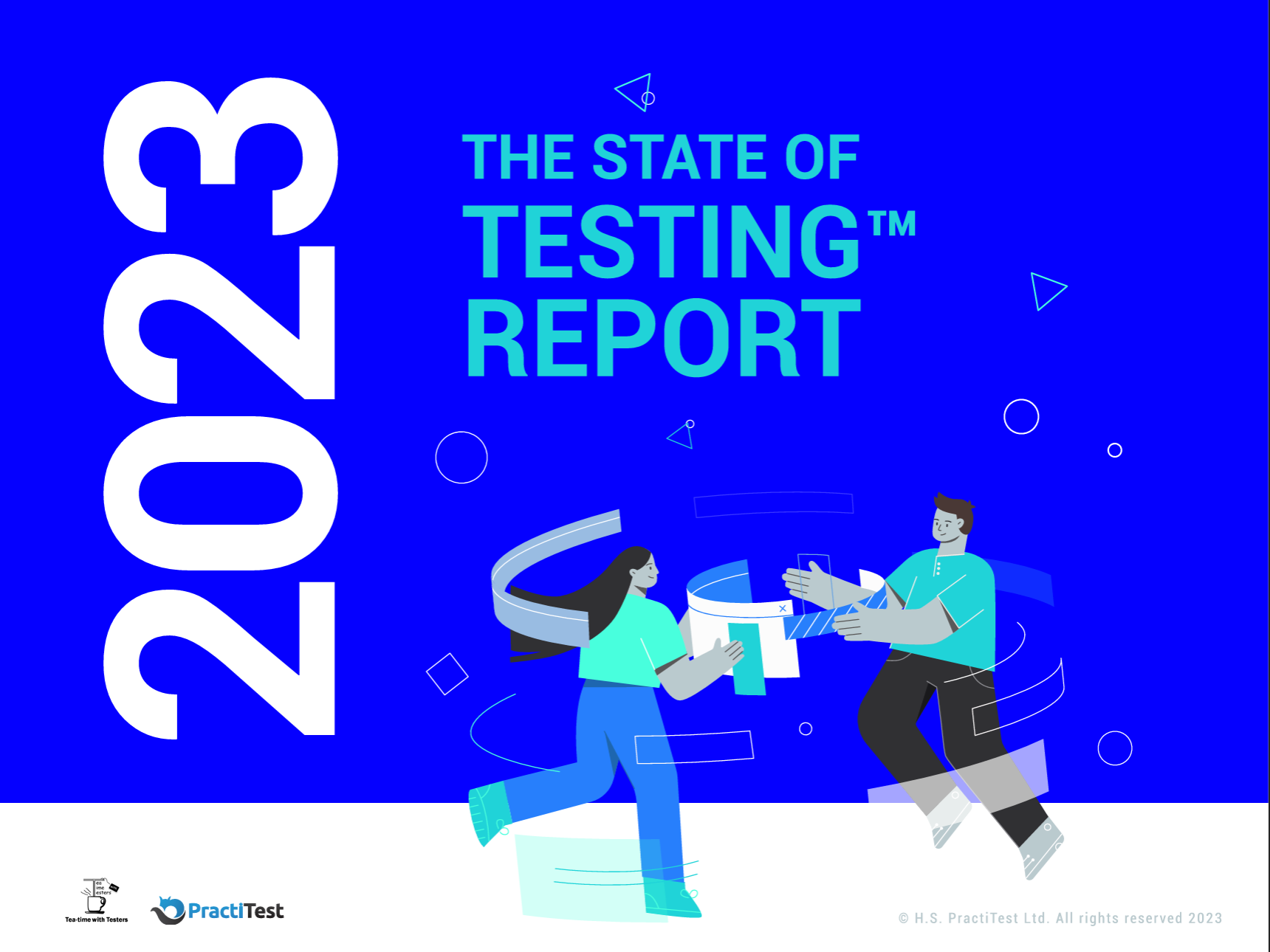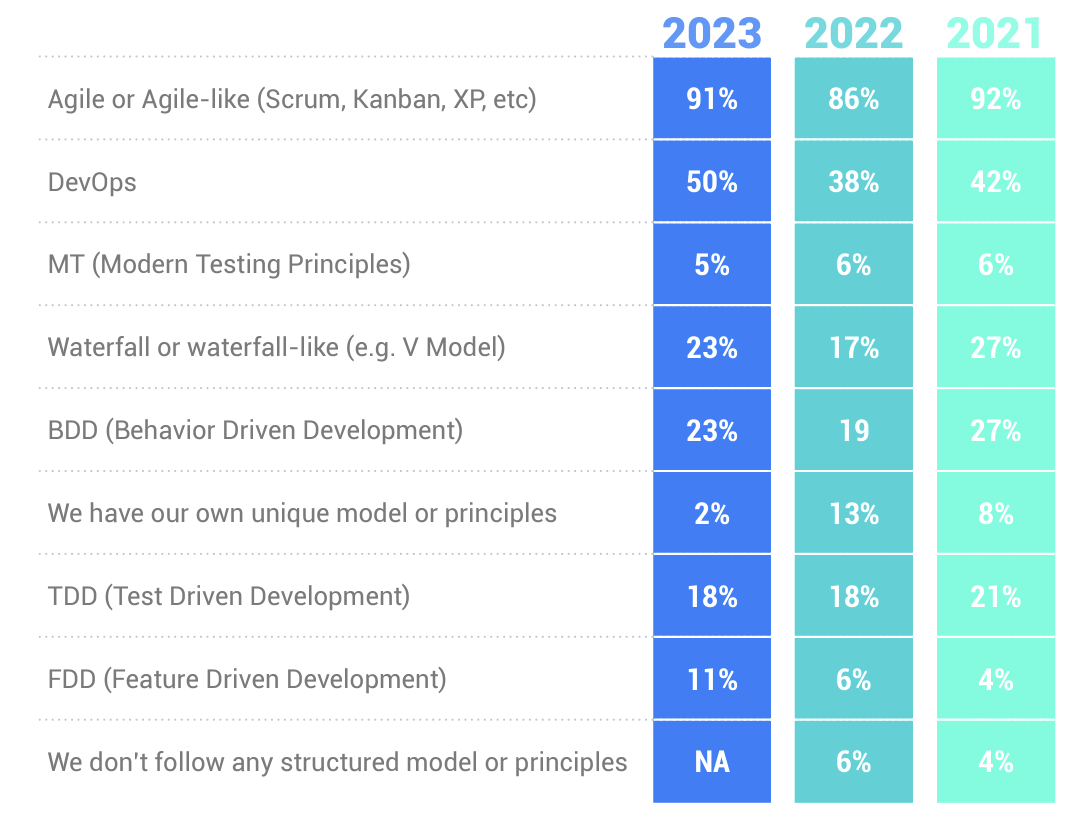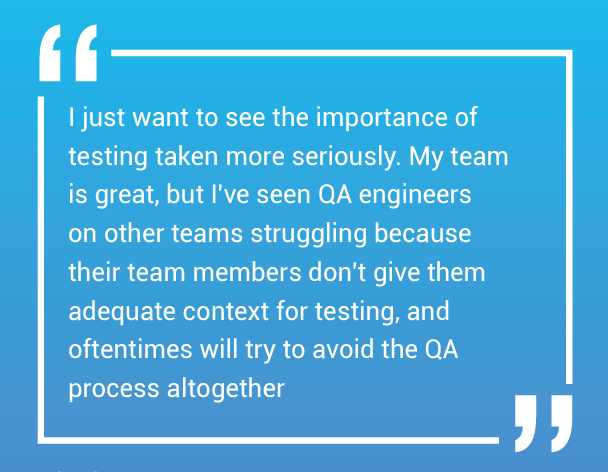This post analyzes the findings of the State of Testing™ Report’s 2023 edition with all the key trends, practices, and challenges in software testing relevant now and in the near future.
The State of Testing™ Report has been carried out annually since 2014 by PractiTest and their partners. Based on a survey, the report focuses on emerging practices and challenges in the global testing community to identify defining trends in software testing.
In this post, we take a look at the key insights of the report’s latest, 2023 version to help you understand where software testing currently stands and where it’s headed. To download the full report, click over to PractiTest’s website.

Surveyed demographics
One of the report’s key findings is that testing is no longer the responsibility of a specialized and isolated group within companies. Rather, testing is increasingly done by a variety of stakeholders within different teams in the organization (or even different organizations).
The report shows a growth of individuals working as a Developer in test or similar role (Software Developer Engineer in Test). Compared to previous years' reports, more respondents in the 2023 edition claimed to have spent years working in testing. That points to ongoing specialization in testing: test-related roles are no longer just a phase in the careers of those aspiring to become developers.
That said, it’s also true that rather than working in specialized software testing teams, testers now seem to be more dispersed within development teams. That is evidenced by a shrinking testing team size reflected in the report, and points to the increasingly cross-functional nature of testing.
Testing methodologies and processes used
The still-growing adoption of CI/CD suggests that Agile and DevOps are still on the rise. But Waterfall is still going strong, with about 23% of respondents still using it.

In parallel with the accelerating shift-left trend, more modern development methodologies like TDD, BDD, and especially FDD (feature-driven development) are gaining traction. More and more testers claim to be an active part of the CI/CD process and to use feedback from the CI/CD pipeline in their testing activities.
An interesting fact is that a surprisingly high ratio (19% to be specific, up from 18% last year) reported that all their testing was done by dedicated testers only. That seems to contradict the wider involvement of non-dedicated testers in the testing process, and the decrease in testing team size pointed to earlier.
Automation is increasingly used across all phases of software testing, with the top three areas for automation being functional/regression testing, unit testing, and CI/CD. That’s no surprise, with automation being an overarching global trend across software development. For 46% of respondents, automation has replaced 50-100% of the testing activities that they had previously carried out manually.
With automation becoming a driver of testing productivity, tools like Symflower for unit test generation will grow in importance. Symflower automates the creation of unit tests by generating test templates and complete test suites, and can even provide inline code diagnostics based on generated tests.
Testers' personal preferences
The survey also asked respondents about their personal perspective: their preferences and experiences related to testing. Taking into account all the above trends, it’s no surprise that when prompted about the testing skills and knowledge areas needed to be successful in testing, respondents put communication skills, test/experiment design, and test automation patterns, principles, practices in the top three. That’s followed by API testing, functional test automation and scripting, and programming skills, further bolstering the increased importance of test automation.
In terms of their subjective preferences, respondents of the study wished for more emphasis on software quality overall, and claimed they would like to see developers focus on more on quality and automation.

Testers claimed that they would be happy to work more alongside developers. Their increased involvement in the development process is both a preference and a key aspect of maintaining focus on quality throughout development. Finally, of course, testers would love to see more recognition of their efforts and contribution to the process of development. The increased importance of software quality in general justifies that wish.
Summary: the State of Testing Report 2023
For specific data backing the above insights, access the report on PractiTest’s website.
Overall, the testing trends uncovered by the latest State of Testing Report point to the ever-growing importance of testing in ensuring software quality, and a cross-functional approach that emphasizes testing throughout development. More automation is key to ensure that adequate testing is carried out on all levels and in all phases of software delivery.